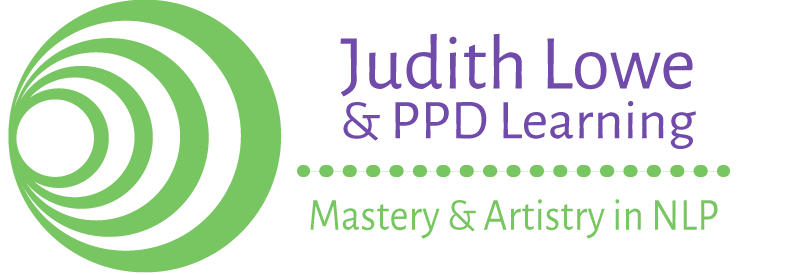Is there Life and Learning after Master Practitioner?
Especially if you don’t want to be a trainer or therapist? Do we, as a field, have any plans for this?
Maybe you’ve done your training, you’re still excited about learning NLP, but somehow never get round to really challenging yourself to take your learning to the next level?
Or you’ve done a couple of the shorter courses and you believe, and in some cases have been told, that you are pretty much ready to call yourself an expert? (yikes!)
Maybe you just don’t know there’s anywhere else to go?
This is just a little 8 point, incomplete ‘manifesto’ of thoughts and hopes for more and better continuous personal and professional development in NLP.
It’s about proposing that successful NLP requires a bit of elegance, subtly, agility, sensitivity and flair and this tends to take more than a few days, weeks even months of training to acquire for most people… not a rocket science position I know and also shared by many in the field.
I want to get Practitioners interested and excited about their achievements in NLP and to be able to perceive and want what’s longer term, further up the road in terms of developing their creativity with NLP and starting to acquire a kind of simplicity, spontaneity and light touch born of skill and knowledge.
Working from skills and first principles.
Think Picasso, think Ella Fitzgerald…
Advanced NLP - Mastery and Artistry – is primarily based in further skills development and refined practice – a quality approach to growth and learning.
(This is in contrast to accumulation of techniques, or merely number of training days.. a quantity approach!)
1. We can debunk the myths of ‘instant’, effortless learning and create a description of the scope and range of advanced NLP which aligns with its history and intentions – drawing on work from Bateson, Grinder, DeLozier, Dilts et al.
2. We can encourage practitioners to identify, experience and leverage distinct areas for development in their NLP skills – using a basic model of the core Practitioner curriculum as a shared reference for an ongoing guided self assessment.
3. We can intentionally enthuse and inspire practitioners to want to commit to high-quality, continuous professional development in the field.
4. We can more precisely situate NLP as the unique field which is historically part of, currently contributing to and draws together in a practical applied form, much of the leading research in applied psychology, – i.e. not a cult or ‘pseudo-science’ (!) – and give practitioners confidence and pride in the intellectual foundations of their training and expertise relative to other approaches.
5.We can interest practitioners in related skill sets i.e. from acting and theatre, from Alexander Technique and body work, from Zen and mindfulness etc. and offer some ways into a more sophisticated somatic as well as emotional intelligence.
6.We can place warm-heartedness at the core of our practice – following Satir and others.
7.We can bring out a fundamental good humour in our work, joy in life and contribution and service to others.
8. We can create a shared ‘road map’ for future practice and generative, creative development in the field.
Notes
At the moment we don’t really even have a shared ‘map’ of key skills.. certainly not the essential EQ type stuff – relational, self aware, sensitive to feelings, tuned into self and other etc.
And if you say ‘somatic’ actually even many trainers don’t have much of a reference – we don’t as a field emphasise being/ having a body, developing skill and distinctions with movement and expression, sensing and experiencing information and communication in the body.
NLP is often conceptualised and taught as primarily a cognitive series of techniques… that you do to yourself and others. The term ‘programming’ has always been a bit of a problematic one which sometimes leads to this error.
We have the skills-label ‘calibration’ and yet the biggest complaint you hear about NLP from a client-type perspective is basically that the NLP person didn’t notice they weren’t enjoying themselves, or just got it wrong for them somehow… not intentionally just clunky, unskilled, unrapportful, annoying.
I think at least one of the things thats happened is there’s a kind of weird muddle somehow in our field.
Because there really are some things we can do, which are relatively quick and don’t take much training to learn, and which still look like magic to outsiders who don’t share our models of the structure of inner-world representations, this has been generalised by some people that everything we do requires virtually zero training.
Our claim to ‘quick and easy and instant’ can so quickly, easily and instantly rebound on us when we come up against a more complex, multi-level, systemic type of issue.
Bizarrely we’ve set ourselves up as the field for which you don’t really need any training.
As I often say more in sorrow etc – we must be the only field that actively denigrates the acquisition of it’s own skill base.
Just look at all the marketing which basically says ‘Why waste your time actually learning NLP?’
So is there life and learning after Master Practitioner?
I’m still excited by NLP, the ‘Bigger NLP’ , that is not always so visible, that allows someone to learn not just lots of cool and clever stuff, but also promotes a kind of expansion of being, a richer, wiser relationship to self and others and a humble and profound personal experience of living and contributing in our beautiful world.
I hope we can offer this experience to our Practitioners too.
